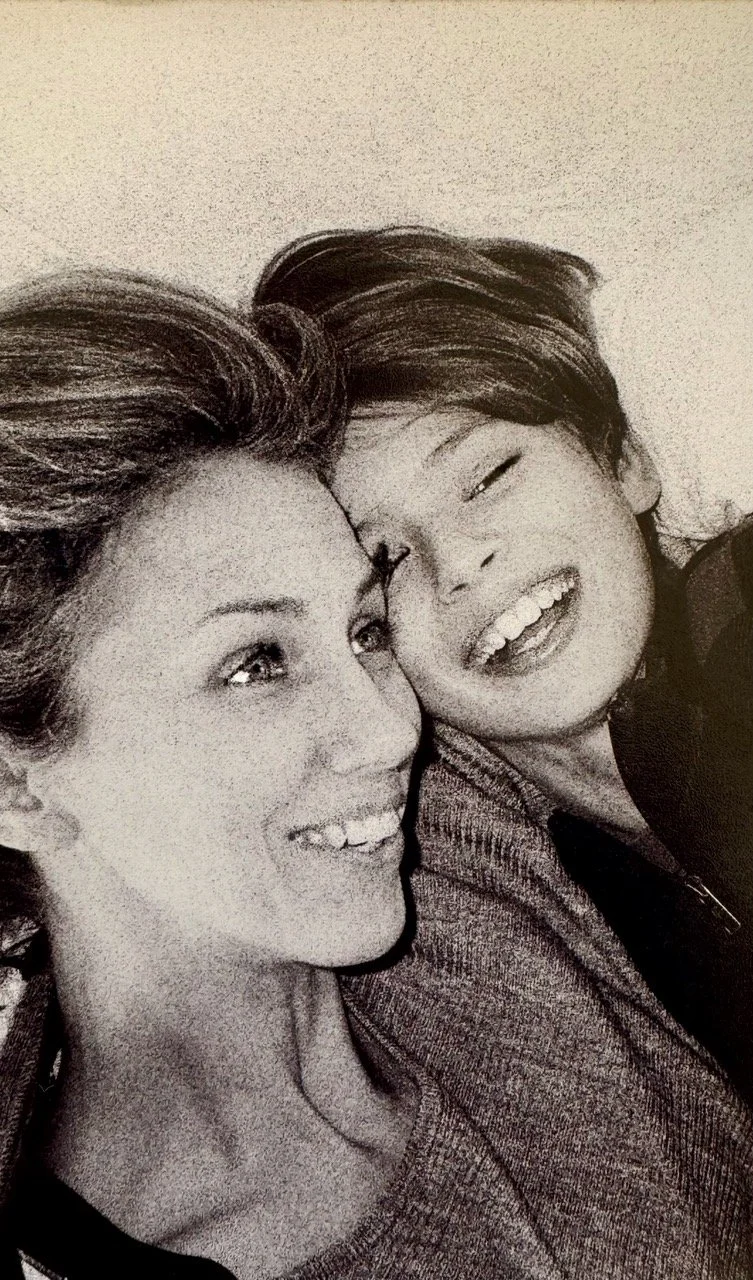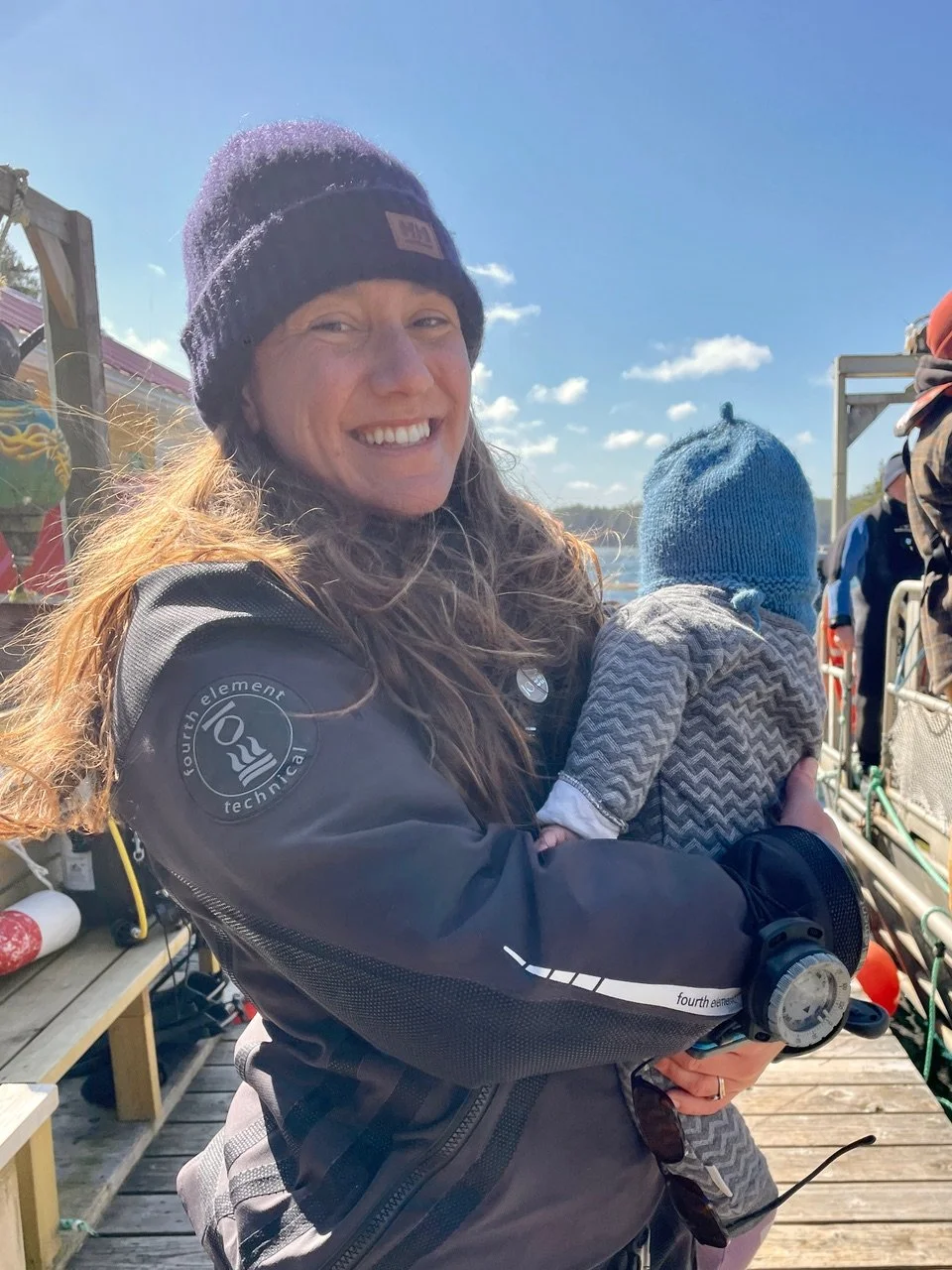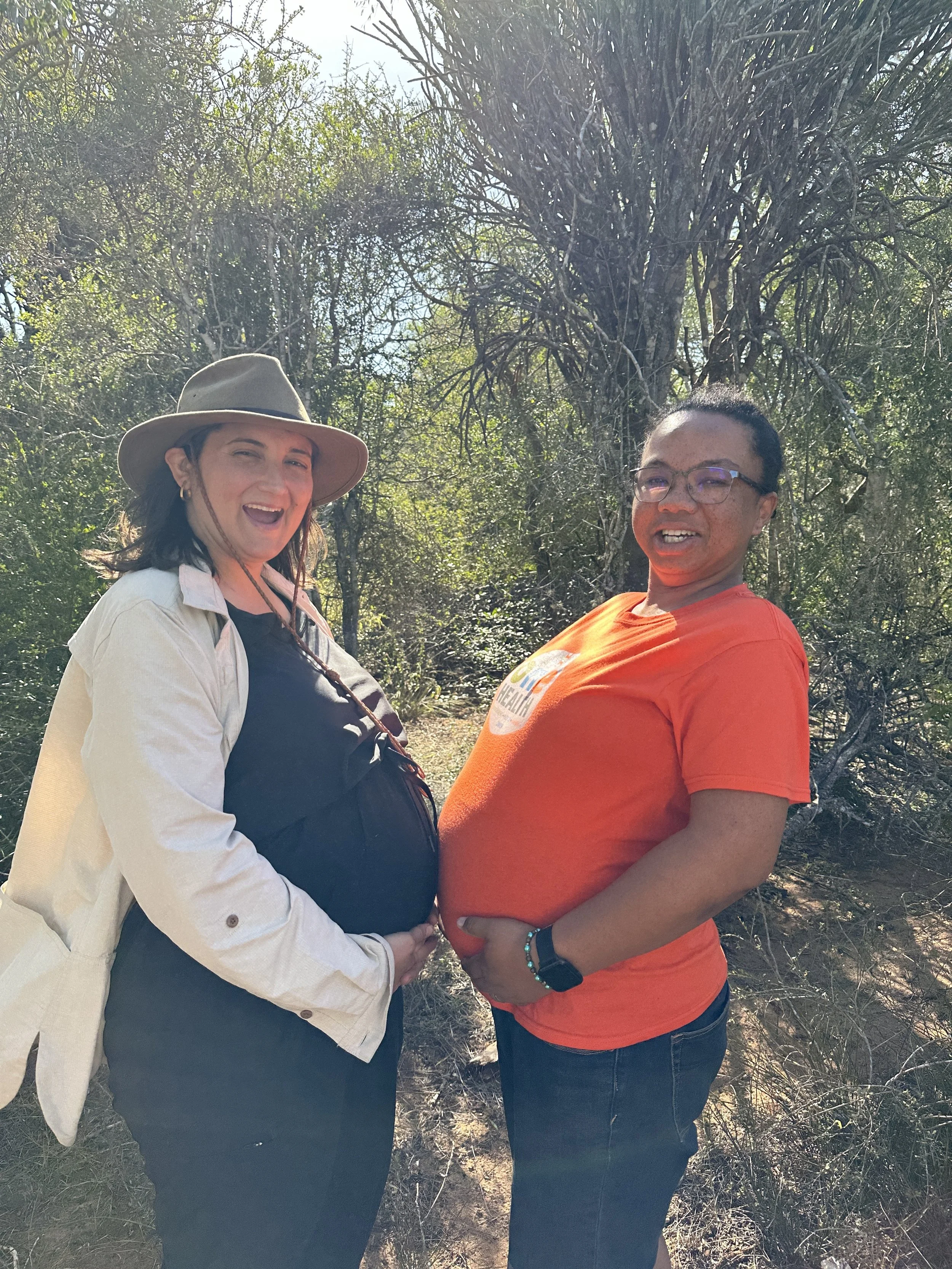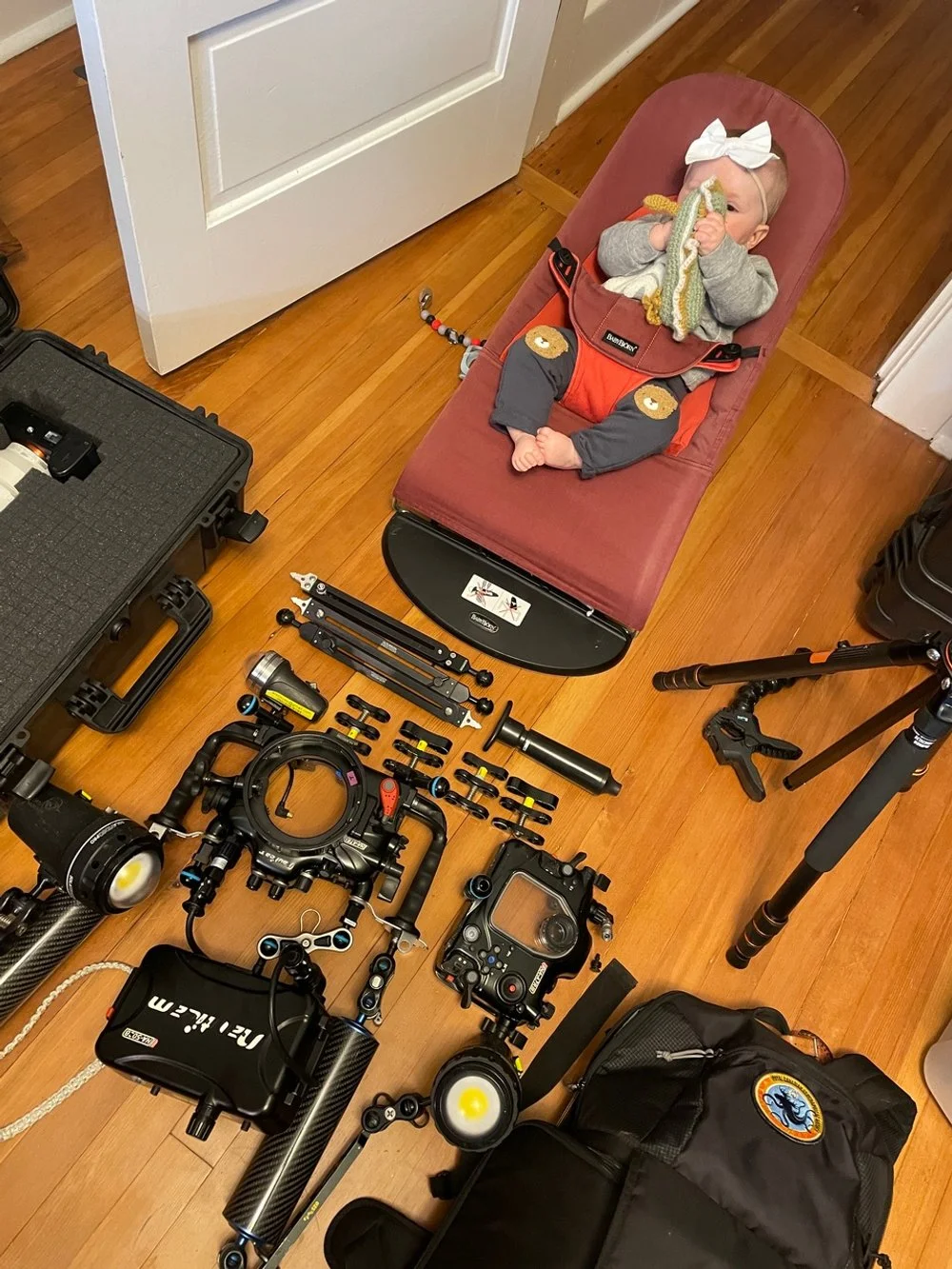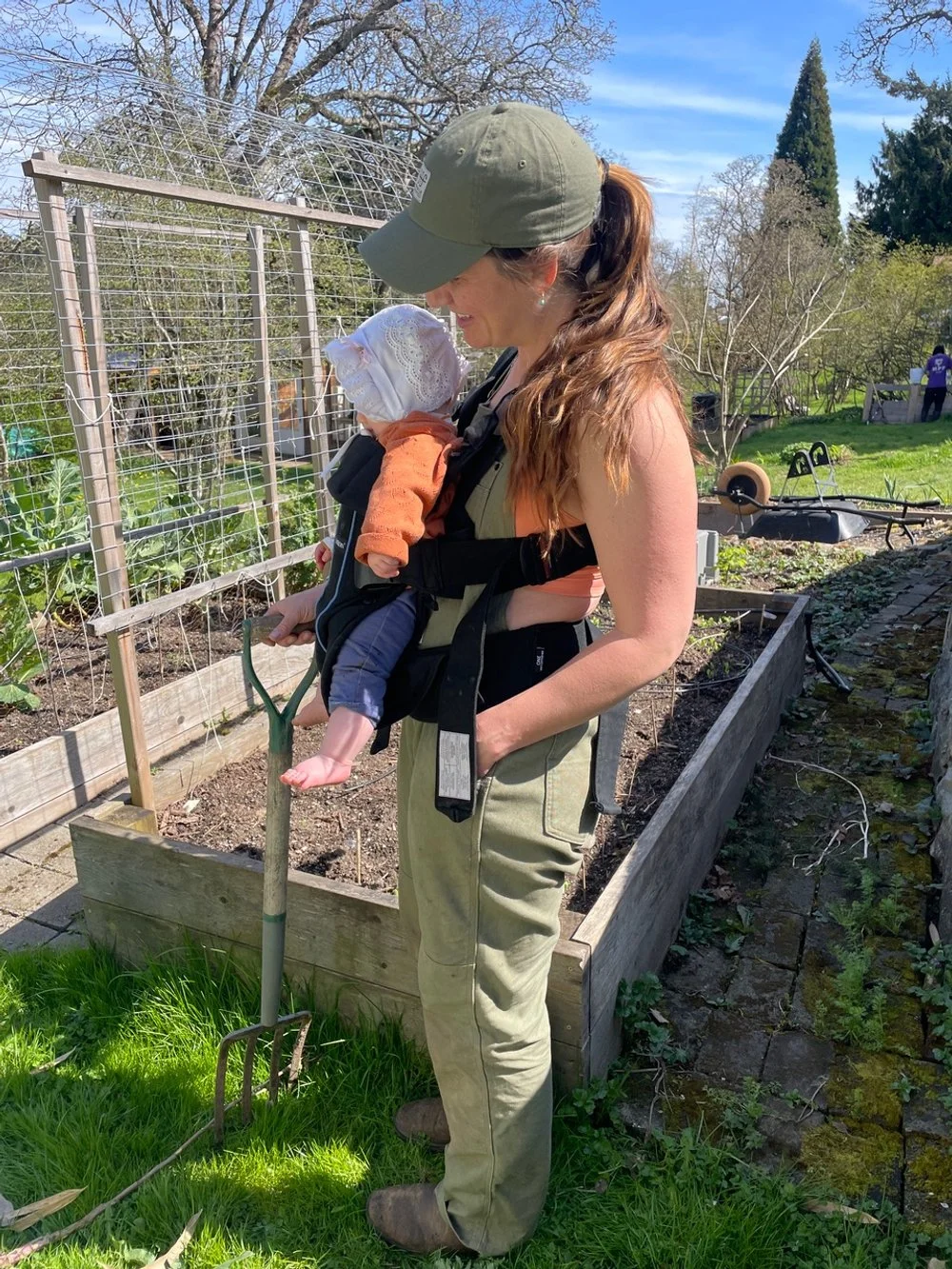Mother’s Day Celebration
Before this article, we would like to acknowledge that every pregnancy, birth, and child-raising experience is different for every person. There is no one-size-fits-all solution or universal experience. With that said, please read on as we honor the incredible women who have multiple roles as both wildlife cinematographers and mothers.
Rachel Morrison, the first woman to be nominated for an Oscar for Best Cinematography, talked about the challenges of being a mother behind the camera in 2018. She took to Instagram to share her journey of working when 8+ months pregnant. “Physically speaking I could have gone back to work within a week of having my son. At the time, I lost many jobs because people were nervous to hire me so soon after the birth but again I say this should be left up to us. Pregnancy and motherhood in general is not a disadvantage and the craft doesn’t suffer as a result. If anything, the added experience and enhanced empathy has made me a better cinematographer and filmmaker.”
This (USA) Mother’s Day, we’re celebrating some of the women in our community. Now more than ever, it’s important to highlight representation and share advice from these amazing individuals who are both cinematographers and mothers.
When we polled our community, a large portion of women could not see a possibility where motherhood and a career as a wildlife cinematographer existed - many hadn’t seen it done and the challenges seemed nigh impossible.
Despite societal changes, there are still many barriers for women when it comes to creating a family. Studies show women are still most likely to be the primary caregiver to children and are more likely to have to take time out of paid work. For many, they face colliding time periods: time where their careers are starting to take off and time when they are thinking about starting a family. A fear exists that they will lose momentum. There were also many who fear their wants or goals could be revealed or found out at different stages (ex: wanting a family eventually, being pregnant, or having kids). This is especially weighty, as there are concerns about potential employers making decisions for them about whether the cinematographer can or should handle a shoot while pregnant or as a new parent. A prominent worry is that even considering a family might make you “not worth investing in.”
Within the industry, there is still only a small percentage of cinematographers who are women. But within this pool, we have mothers who are talented, decorated, and incredible individuals and cinematographers. We hope you read and celebrate this part of our community with us.
We are also very excited to announce that Sonya Lee and Tiare Boyes are currently working on a documentary for CBC about motherhood as a wildlife cinematographer. We will keep you updated on that as it progresses!
We would like to note that we recognize Mother’s Day can be a difficult day for many and we want to send love to our community who are experiencing mourning or grief, in any form or with any relationships, today instead of celebration.
First let me introduce you to those who have kindly shared advice:
Christina Karliczek Skoglund (@christinakarliczek): Christina Karliczek Skoglund is an international award-winning director of photography and underwater filming specialist, who has been shooting underwater for over 15 years. Her passion for underwater environments led her into wildlife filming where her focus is on bluechip sequence work. Christina is an experienced rebreather diver and has filmed around the world both on land and underwater for landmark wildlife and expeditions series for BBC, Disney+, National Geographic, NDR/Doclights and Terra Mater. “Sharks Of The Icy North” was her debut as producer-director for Doclights/NDR/ARTE/ORF/CuriosityStream.
Sophie Darlington (@sophiedarlingtondop): Sophie Darlington, ASC, is a BAFTA-winning wildlife cinematographer who broke barriers as one of the few female cinematographers working globally in the 1990s.`
With over 30 years of experience, her emotionally resonant work features in acclaimed series for National Geographic, Netflix, and the BBC, including Our Planet, Queens, Dynasties, and The Hunt. As the first dedicated wildlife DoP invited to join the American Society of Cinematographers, she continues the legacy of her mentor, Emmy winner Hugo van Lawick, by championing diversity in the industry, especially encouraging more women to build careers behind the camera.
Ann Johnson Prum (@coneflower_studios): Ann Johnson Prum is an award-winning wildlife television executive, producer and cinematographer, and founder of Coneflower Studios. Ann combines her deep knowledge of the natural world with her skills as an expedition leader to bring immersive, surprising, deeply researched, and beautiful shows to her audiences. Ann recently Co-Executive Produced Born Wild: The Next Generation for National Geographic. Before that Ann oversaw the landmark National Science Foundation funded three-part series, American Spring Live, the PBS series Nature. Over the last 10 years, Ann has produced numerous award winning wildlife shows including Sex, Lies and Butterflies, Super Hummingbirds, which won an Emmy for Best Cinematography, Animal Homes, a three part series that was nominated for 4 Emmys including Best Nature Program, An Original Duckumentary, which won an Emmy for Best Nature Program, and Magic in the Air, which was nominated for 2 Emmys including Best Nature Program. These programs have also received numerous international awards and festival prizes.
Tiare Boyes (@tiarebuoys): Tiare is a certified commercial occupational scuba diver based in Canada with cold water, tropical water, and Arctic water experience. She has worked as a Camera Operator, Underwater Camera Assistant, Dive Safety, and on-screen talent for online and broadcast productions. Tiare is also an ocean plastics artist. Her life has always revolved around the ocean; understanding how we can be good neighbours to our marine cousins, as well as sharing the incredible beauty and amazing underwater life with others in an enjoyable and educational manner drives her creativity. Her passion is being immersed in the marine world, both at work and at play and showing others the incredible world that lays just below the surface.
Katie Schuler (@coralandoak): Katie Schuler is a filmmaker - producer, director and cinematographer. More than a decade of filmmaking across six continents, Katie’s films explore how we live alongside nature, garnering accolades, accruing millions of views, and inspiring meaningful conservation victories. She is a Nat Geo explorer, ILCP photographer, and founder of Coral and Oak Studios, which has produced award winning wildlife conservation films. Her production company, Coral & Oak Studios, has partnered with many of the most recognizable names in wildlife filmmaking, including National Geographic, Smithsonian, BBC, HBO, and PBS. Currently you can see her work in “In Her Nature” on PBS online.
And here is their advice:
What's one piece of advice you would give to someone wanting to pursue this career and have children?
Christina: Be mentally prepared that it’s a marathon to raise kids. It all depends on what support networks you can have around you, and how much you can live up to letting your kids also be in care of others.
Are you financially stable enough to be a solo parent? Financial independency will make life easier. There won’t be answers to all questions when you’re considering having a child - but this is an important one.
Sophie: You can! Speak to other parents, it’s not easy but it's possible.
Ann: The one piece of advice- that’s a tough one - I vascilate between “learn to say no” to jobs that will interfere with your ability to be the mom you want to be- and “find the balance” between work and home.
Tiare: Don’t assume you will have to give up your career. I spent three years "coming to terms" with the possibility all the momentum I was building in my career would be killed by having kids, I felt like I mourned the end of my career before it was even over, but when I told my community I had to stop diving for a while, they were super supportive and the teams I am working with now have written childcare into the shoot budgets or even writing my role as a working mother into the scripts. I was absolutely blown away by the support and excitement. One mother who was 20 years my senior gave me some advice which helped “you are going to do everything you were going to do, just maybe a few years later”. Did I miss out on some amazing dive shoots while I was pregnant? Yes, do I regret it? No. There will be other opportunities and always more adventures.
Katie: Don't give up on your dream of having a career AND a family - what are we teaching our kids if we give up what we love to raise them? And don't wait for it to be " a good time" or to feel ready, just do it!
Are there any skills from being a parent you've gained that are useful in the field?
Christina: Totally, I have become so much more resilient, efficient and determined. I have grown so much personally and have overcome enormous challenges.
My motivation for conservation work is stronger than ever.
And…I watch the more powerful sequences of predations in blue chip series with different eyes now haha…my kids used to get scared! As our audience is also made up of kids, it’s probably influencing my cinematography too!
Sophie: Dealing with sleep deprivation!
Ann: Be a good listener and don’t jump up and try to fix everything. Your team/children will learn resiliency by making their own decisions and coming up with their own work around to problems.
Tiare: Having children is going to shift how you approach everything. You will not have the same perspective as you did before and that is a really cool thing! I went from dreaming of shoots in far away places to creating a documentary shot literally in my own backyard. My daughter will be coming to work with me everyday and I could not be more stoked to have her see me doing what I love to do.
Katie: Parenthood expands your brain in ways you can't imagine, opening your storytelling to more universal themes that reach new audiences.
What helps make a good support system at home when you're away on shoots?
Christina: A society system that supports full time working parents. I have been fortunate to experience this in Scandinavia.
Be open and explore other ways to live than the stereotypical concept of family, e.g. bonds with friends, wider family, open relationships. While we were together, my partner and I shared the load- his support with the kids made my flexible work life possible.
Avoid screen addiction, integrate them in fun parts of your passion.
Sophie: Nothing can prepare you for leaving your wee one/s. It’s tough, no bones about it and there are no hard and fast rules - primarily whatever works best for them is all that matters and then you. If they want to talk daily, make sure you do - if they don’t want to chat at all - that’s their shout.
Ann: Good support system at home- So many things to this. A partner who can cook for the family and care for the children and the home in a true shared partnership- not just stepping up during the times you are away- but always.
Tiare: Cultivating community is so important when it comes to support at home, both chosen family and blood relatives. Having a good “shore-support-spouse” (I work mostly underwater) has been essential for me both before I got pregnant and after. My husband has always wholeheartedly supported my career and adventures. Now I rely on him for most of the childcare while I am working. It is difficult to juggle schedules though, especially when working with wildlife shoots. I don’t have a big family but other parents I know really rely on grandparents and siblings for childcare, we are lucky to have some good friends who are willing to support us too.
Katie: Don't be afraid to rely on people you trust to take care of your kiddo. If your partner can't do it solo, ask for extra help from a friend or family member. It can also help to find a film buddy to split longer gigs with so you don't have to be away from home for more than 2-3 weeks at a time.
How can production companies better support parents who are freelancers?
Christina: The biggest issue for a freelancing parent is to puzzle together lots of shorter shoots plus factoring in the flexibility of production schedules and nature. It’s extremely helpful to work on several shoots for one series, or to know that you’re likely to shoot more than one full sequence. This improves planning stability, and also creative output, and less time spent on constantly having to fix contracts, admin and getting to know working styles of your team and so on.
Train production crews why specifically women and non-binary behind the camera often experience direct or indirect gender bias, discrimination, racism. How this affects career prosperity compared to male colleagues from the point of crew selection to delivery.
Sophie: Re-training when parents come back into the workspace could be really useful, you can feel so out of the loop.
Realistic expectations also help - my first proper shoot back was eight weeks long, the only work I’d had in a few years - I’d no choice but to take it if I wanted to get back in, a shorter shoot would have been easier on us all.
Ann: Good question- I went out on my own when the oldest of my three sons was two because I wanted to have control over my schedule. But not everyone can do that. I think production companies having clear planning and allowing flexibility for your shooters. Also for the production company to understand the sacrifice of folks being away from home and understanding the stress and full body exhaustion by the end of a shoot. Giving people a rest day before they go home so they can arrive home able to function would be great too!
Tiare: Write childcare into the budget! I can’t tell you how much it meant to me when the producer I am working with on my latest shoot made sure to make room for care for my daughter while I work. Not every parent has the same needs though, listening to what is needed from individual parents will go a long way.
Katie: Offering equal maternity and paternity leave. Allow parents to choose their own hours and trust that they will work just as hard, if not harder.
Thank you
A huge thank you to these five for gifting us their time and knowledge! I hope you take the time to follow each of these incredible artists and tune in to their work.
Happy Mother’s Day!
WCDF

